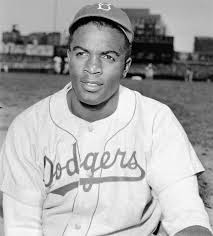After a great weekend of cycling, I had a busy and somewhat tumultuous couple of days. They weren't bad: I just didn't have any time for anything besides work, some business I had to attend to (more about that later) and, of course, cycling to it.
Today I will once again invoke my Howard Cosell Rule and write a post that's not about bicycles or bicycling. Well, I'll briefly mention some of my riding but it will hardly be the focus of this post.
Instead, I want to talk about this date--9 November--which, as it turns out, is one of the most momentous and tumultuous in history, particularly that of the 20th Century.
I'll lead off with the event that touches, if indirectly, on my cycling. Some of my most memorable rides took me through the countryside and among the temples of Cambodia. Seventy years ago today, the home of the Khmers and one of the world's greatest human-made structures gained its independence from France, the country that colonized it along with neighboring Laos and Vietnam.
Now, if you ever wanted proof that correlation does not equal causation (or, more precisely, that coincidence does not equal correlation or causation), consider this: On that very same day, in 1953, Dylan Thomas ("Do not go gentle into that good night...") died in St. Vincent's Hospital, in the heart of Greenwich Village. He had turned 39 years old a couple of weeks earlier and, as with any artist who dies young, legends and rumors grew around him. One I often heard--but for which I could find no corroboration--was that he "drank himself to death in the White Horse Tavern." Though he was a heavy drinker, he didn't suffer from cirrhosis of the liver. He did, however, suffer from respiratory ailments and, a week before he died, a heavy smog that would kill 200 people enveloped New York.
This date also witnessed two of the most important events in 20th-Century Germany. They both involved breaking things down, but nearly everyone saw one of those events as triumphant while the other would become a harbinger of one of the human race's worst tragedies.
Joy, at least for a time, came for many people in 1989 when, on this date, the Berlin Wall was opened. So, for the first time since the city's (and country's) partition by the US, Britain and France on the western side and the Soviet Union in the east. Soon after, people who lived on both sides, and tourists, hacked away at the Wall for souvenirs. Contrary to another rumor you may have heard, this event didn't inspire Pink Floyd's "The Wall," which preceded it by a decade.
But in contrast to those who gleefully broke those bricks away, the folks who shattered glass along the streets of Berlin, Vienna and other German and Austrian cities--on this date, in 1938--were angry, vengeful and hateful, stoked by a demagogic autocrat. (Sound familiar?) While Kristallnacht, the "night of shattered glass" may not have been the opening salvo of World War II (I believe Japan's invasion of Manchuria, seven years earlier, was, but what do I know?) it almost certainly was, if not the beginning of the Holocaust, then its signal bell. The kristall came from windows of Jewish-owned and -operated shops, and that night, 91 Jews were murdered, about 30,000 were arrested and more than 200 synagogues were destroyed.
I invoke my Howard Cosell Rule to discuss important historical events and people because I have come to understand, at least somewhat, how necessary it is to commemorate them. There are very few remaining witnesses to Kristallnacht, just as there were only a handful of living people who experienced the Tulsa Race Massacre of 1921 when I wrote an article about it. That piece's publication on Huffington Post brought me into contact with one of those survivors: Olivia Hooker, who saw the bombings, shootings and destruction as a little girl. She was 101 years old when that article appeared and we corresponded until her death two years later.
I cannot pretend that I understand, let alone feel, what she or Eve Kugler, who was seven years old on that awful night when those windows were shattered “in the land of Mozart” have carried with them through the rest of their lives and, in the case of Olivia Hooker, whatever came after. But Elie Wiesel has written that when we listen to witnesses, we become witnesses. Perhaps that is the best I can do--and why I am invoking my Howard Cosell rule.
























